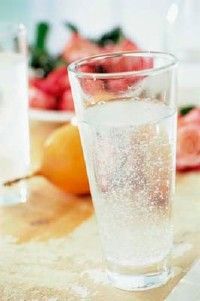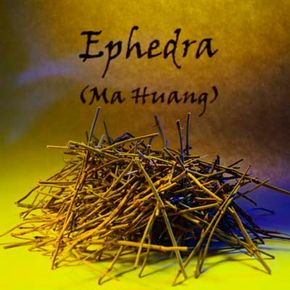Heat and dampness, two of the six pernicious influences in traditional Chinese medicine, have opposite effects on the body. While heat causes increased activity, dampness brings stagnation to a system. Each of these influences has its own set of syndromes associated with its effects.
Heat
Heat, or fire, is a yang pernicious influence. As in nature, heat causes expansion and increased activity. When out of balance, heat can lead to irritability, fever, and inflammatory conditions. By its nature, heat rises, appearing as a red face and eyes, sore throat, and dizziness. If heat affects the heart or liver, anger may result. Heat tends to affect the body fluids, leading to thirst, constipation, and dark urine. Since it can produce wind, heat can lead to spasms.
Syndromes of Heat Wind Heat: This very common condition appears mostly as the common cold and flu. Wind combines with heat to produce symptoms of fever, sore throat, thirst, headache, sweating, rapid pulse, and sometimes a red tip of the tongue. The treatment principle is to repel the wind and clear the heat with acupuncture and herbal formulas.
Excess Heat in the Organs: Symptoms of this yang excess condition are, typically, irritability, thirst, dry throat, concentrated (dark or burning) urine, constipation, red tongue with a yellow coat, and a full, rapid pulse. Other symptoms depend on the organ affected. For example, heart fire produces severe emotional disturbances; stomach fire can cause mouth ulcers; liver fire might stir up extreme anger; lung fire might bring about an accumulation of yellow mucus in the lungs. In all cases, the treatment is to clear the excess heat with herbs and with manipulation of acupuncture points that have an affinity for the organ affected.
Deficiency Heat: This syndrome is caused by a deficiency in the yin, cooling aspect of an organ; the resulting imbalance causes heat to flare up. The general symptoms of deficiency heat are red cheeks, night sweats, irritability, chronic inflammation, red tongue with no coat, and a thin, rapid pulse. Other symptoms depend on the organ affected. When the kidneys have deficiency heat, chronic urinary tract infections can occur; deficiency heat in the lungs -- which can arise from cigarette smoking -- can lead to a chronic dry cough; and the heat from heart yin deficiency can cause insomnia.
Dampness
In nature, dampness soaks the ground and everything that comes in contact with it, and stagnation results. Once something becomes damp, it can take a long time for it to dry out again, especially in wet weather. The yin pathogenic influence of dampness has similar qualities: It is persistent and heavy, and it can be difficult to resolve. A person who spends a lot of time in the rain, lives in a damp environment, or sleeps on the ground may be susceptible to external dampness.
Similarly, a person who eats large amounts of ice cream, cold foods and drinks, greasy foods, and sweets is prone to imbalances of internal dampness. Dampness has both tangible and intangible aspects. Tangible dampness includes phlegm, edema (fluid retention), and discharges. Intangible dampness includes a person's subjective feelings of heaviness and dizziness. A "slippery" pulse and a greasy tongue coating usually accompany both types of dampness. In general, symptoms of dampness in the body include water retention, swelling, feelings of heaviness, coughing or vomiting phlegm, and skin rashes that ooze or are crusty (as in eczema).
Since dampness is heavy, it has a tendency to sink downward to affect the lower parts of the body: A person may experience a feeling of sinking or heaviness, and swelling frequently affects the legs. These characteristics are the opposite of wind, which has a tendency to affect the upper part of the body. When dampness combines with heat, the condition of damp heat develops, which can cause such symptoms as dark burning urine, sticky foul-smelling stools, yellow vaginal discharges, and jaundice.
Syndromes of Dampness Wind Damp: This form of the common cold is characterized by chills, headache, afternoon fever, nausea, and diarrhea. A person may describe feeling as if a wet towel is wrapped around the head. Treatment includes moxibustion and aromatic herbs that repel wind and drain dampness.
Wind Damp Joint Pain: This condition is characterized by a dull and heavy pain and numbness that can persist in certain joints. Rheumatic pain that gets worse in damp weather is a good example of this type of imbalance. The condition tends to be chronic and resistant to treatment. Treatment with acupuncture and moxibustion can relieve the stiffness and pain. Herbs that clear wind damp, such as mulberry branches (sang zhi) and cinnamon twigs (gui zhi), are used to decrease swelling and improve circulation, following the Chinese principle of using "branches (tree limbs) to treat branches (body limbs)."
Damp and Toxins on the Skin: This condition includes any skin inflammation that also has a weepy, damp nature, such as eczema, skin ulcers, and allergic reactions that produce a discharge (skin eruptions that ooze or that are crusty). Herbs are used both internally and in the form of topical poultices.
Internal Dampness: Typically due to an imbalance in the spleen, symptoms of internal dampness include bloating, diarrhea, lack of appetite, undigested food in the stools, fatigue, and possible edema in the abdominal area. When a person coughs up mucus right after eating ice cream, it shows that a cold spleen produces dampness. Since excessive dampness in the spleen is stored in the lungs, a damp spleen can often lead to frequent colds and allergies. Treatment of internal dampness focuses on eliminating the dampness with diuretic herbs and activating the spleen with tonifying herbs.
Go to the next page to learn about dryness and summer heat in traditional Chinese medicine.
For more about traditional Chinese medicine, treatment, cures, beliefs, and other interesting topics, see:





